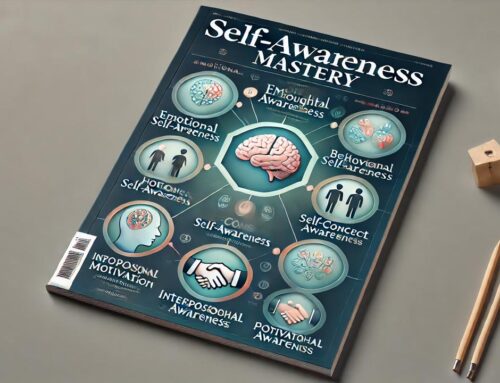Developing an Eagerness to Learn: The Gateway to Lifelong Learning
Lifelong learning is the “ongoing, voluntary, and self-motivated” pursuit of knowledge for personal or professional reasons. Lifelong learning is crucial not only for an individual’s competitiveness and employability but also for enhancing social inclusion, active citizenship, and personal development.
Whether you’re an industry veteran or just starting your career, fostering an eagerness to learn can be the defining factor in your professional success. This article delves into the critical concept of lifelong learning and how developing an insatiable appetite for knowledge can set you apart in a rapidly changing landscape.
We’ll explore the psychological and practical facets of cultivating a learning mindset, highlight the benefits of staying curious, and provide actionable strategies for integrating continuous learning into your daily life. By the end of this article, you’ll have a comprehensive understanding of why lifelong learning is essential and how to make it a natural part of your routine.
Table of Contents
- The Importance of Lifelong Learning in Innovation and Technology
- Psychological Drivers of Eagerness to Learn
- Strategies for Developing an Eagerness to Learn
- The Role of Organizations in Promoting Lifelong Learning
- Measuring the Impact of Lifelong Learning
- Top 5 Frequently Asked Questions
- Final Thoughts
The Importance of Lifelong Learning in Innovation and Technology
Lifelong learning is the engine that drives innovation. In the technology sector, where change is constant and the half-life of skills is shrinking, staying relevant requires a commitment to ongoing education. But lifelong learning isn’t just about keeping up with new tools or programming languages—it’s about cultivating the ability to think critically, solve complex problems, and remain adaptable in the face of uncertainty.
Word is by 2025, over 50% of all employees will need reskilling due to advancements in automation and digital transformation. This statistic alone underscores the importance of making continuous learning an integral part of your professional life.
In this section, we will delve deeper into the significance of lifelong learning and how it underpins successful careers in innovation and technology.
Psychological Drivers of Eagerness to Learn
Curiosity as a Catalyst
Curiosity is the cornerstone of an eagerness to learn. It’s what drives us to explore new ideas, ask questions, and seek out new knowledge. Studies have shown that curiosity not only enhances learning outcomes but also boosts motivation and engagement, making the learning process more enjoyable and effective.
Overcoming Fear of the Unknown
Fear is one of the most significant barriers to learning. Fear of failure, fear of looking incompetent, or fear of change can all stifle our desire to learn. However, by recognizing these fears and reframing them as opportunities for growth, you can overcome them and develop a healthier, more resilient attitude toward learning.
Strategies for Developing an Eagerness to Learn
Adopt a Growth Mindset
A growth mindset—the belief that abilities and intelligence can be developed through hard work and dedication—is essential for lifelong learning. When you adopt this mindset, you view challenges as opportunities to improve rather than threats to your competence.
Set Learning Goals
Goal setting is a powerful tool for fostering an eagerness to learn. By setting specific, measurable, achievable, relevant, and time-bound (SMART) goals, you can create a clear roadmap for your learning journey and track your progress along the way.
Leverage Technology for Continuous Education
In today’s digital age, technology is a powerful enabler of lifelong learning. From online courses and webinars to podcasts and educational apps, there are countless resources at your fingertips that can help you learn new skills and stay up-to-date with industry trends.
The Role of Organizations in Promoting Lifelong Learning
Creating a Culture of Learning
Organizations play a crucial role in fostering a learning culture. By providing access to training and development programs, encouraging knowledge sharing, and recognizing the value of continuous learning, companies can help employees stay engaged and motivated.
Incentivizing Continuous Education
Incentives such as tuition reimbursement, professional development stipends, and career advancement opportunities can motivate employees to pursue lifelong learning. Organizations that prioritize learning are more likely to attract and retain top talent, drive innovation, and maintain a competitive edge.
Measuring the Impact of Lifelong Learning
Personal and Professional Growth Metrics
Tracking your learning progress through personal and professional growth metrics—such as skill acquisition, performance improvements, and career advancements—can help you stay motivated and focused on your learning goals.
Organizational Performance Indicators
For organizations, measuring the impact of lifelong learning can involve tracking key performance indicators (KPIs) such as employee engagement, productivity, innovation, and retention rates. By analyzing these metrics, companies can assess the effectiveness of their learning initiatives and make data-driven decisions to improve them.
Top 5 Frequently Asked Questions
Final Thoughts
The most important takeaway from this article is that lifelong learning is not just a trend—it’s a vital component of personal and professional growth, especially in innovation and technology management. By cultivating an eagerness to learn, you position yourself to stay ahead of the curve, adapt to changes, and thrive in a rapidly evolving landscape. Remember, the journey of lifelong learning is ongoing and ever-changing, but with the right mindset and strategies, it’s a journey that can lead to profound personal and professional rewards.






Leave A Comment